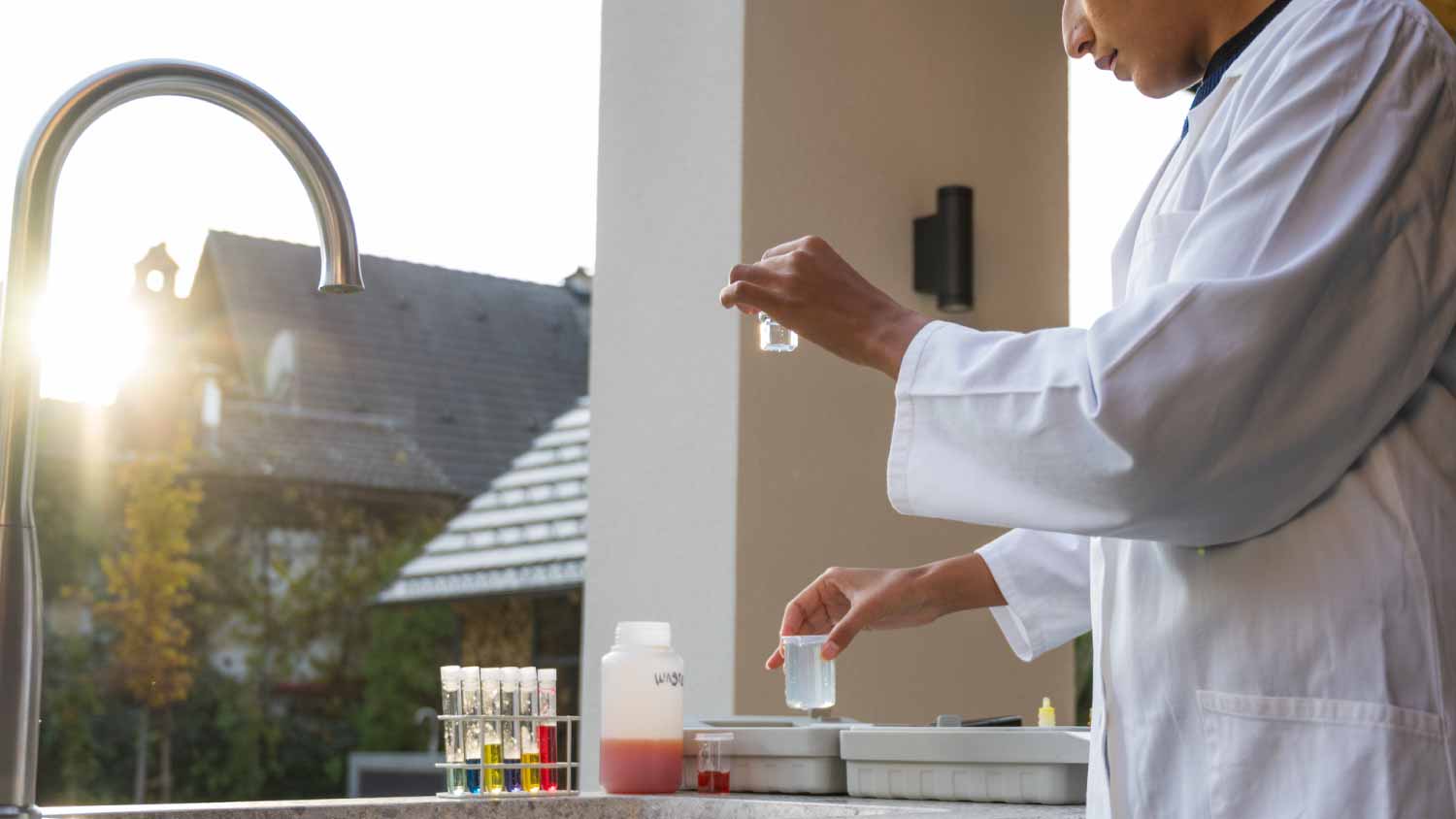Who Can I Call to Test My Water for Lead?
You should never expose yourself to water with lead in it


If you have an older home, you may be wondering, who can I call to test my water for lead? You should consider hiring a certified water testing professional or a state-certified laboratory to test your water for lead. These professionals typically hold certifications from organizations like the National Environmental Laboratory Accreditation Program (NELAP) or the Environmental Protection Agency (EPA). When hiring a water testing professional, you want to ensure they have the necessary certifications and accreditations to perform accurate lead testing while adhering to legal standards and ensuring the safety of your water supply. Read on for more insight.
The Dangers of Lead in Water
If you have any reason at all to suspect there is lead in your home’s water, you want to act quickly to have your water tested. Lead in water poses severe health risks, especially for children and pregnant women. Exposure to even low levels of lead can result in developmental delays, learning difficulties, and behavioral issues in kids. Lead can also cause serious health problems in adults, including cardiovascular issues, kidney problems, and reproductive issues. Lead exposure is particularly harmful because it accumulates in the body over time, leading to long-term health complications.
So—how do you end up exposed to lead? The ingestion of lead-contaminated water is the primary route of exposure. Older homes with lead-based plumbing fixtures or lead pipes are significant contributors to lead leaching into the water supply. Even low levels of lead exposure over extended periods can have detrimental effects.
Lead poisoning isn’t always apparent as it manifests with symptoms like headaches, abdominal pain, and fatigue that can have a myriad of causes. Since these symptoms can easily be mistaken for other health issues, diagnosing lead poisoning from water can be challenging without proper testing.
It’s important to note that there is no safe level of lead exposure. As a result, preventive measures and prompt action upon detection of lead in water are crucial. Regular testing of water sources, especially in older residences or areas with known infrastructure issues, is essential for safeguarding against lead exposure. Installing water filters certified to remove lead or replacing old plumbing fixtures can significantly reduce the risk.
What is the Proper Way to Test for Lead in Water?

Because lead poses such a serious threat to your health, it’s always best to hire an experienced lead testing professional near you to check your home’s water for lead. However, if you do decide to undertake this task yourself, these are the steps you will generally need to follow:
Choose a certified lab: Select a certified laboratory accredited by the EPA or an equivalent authority. These labs adhere to specific protocols that ensure accurate testing methods and reliable results.
Collect samples: Follow proper procedures for collecting samples. Use clean containers provided by the lab and take samples from the water source after it has been stagnant for at least six hours. This allows for an accurate representation of the water quality.
Submit samples promptly: Once collected, submit the samples as soon as you can to the laboratory. Time can affect the accuracy of results, so ensure timely delivery to the lab for analysis.
Read your results: After testing, carefully review the results provided by the lab. The EPA sets the action level for lead in drinking water at 15 parts per billion (ppb). Any detection above this level indicates a potential health risk and requires immediate action.
Who Do You Call to Test Water for Lead?
Again—it’s a really good idea to outsource any form of lead testing to a professional or at the very least, to collaborate with a state-certified lab if you choose to DIY this task. Local or state health departments often maintain lists of certified labs for water testing. Many local health departments also offer or facilitate water testing services. They might provide test kits or recommend certified labs for accurate lead testing. Do some research on which options work best for your budget and if you can afford to outsource lead testing to a professional, do so. You will gain some much-needed peace of mind that your home is either led free or that you have accurate results to work with.















